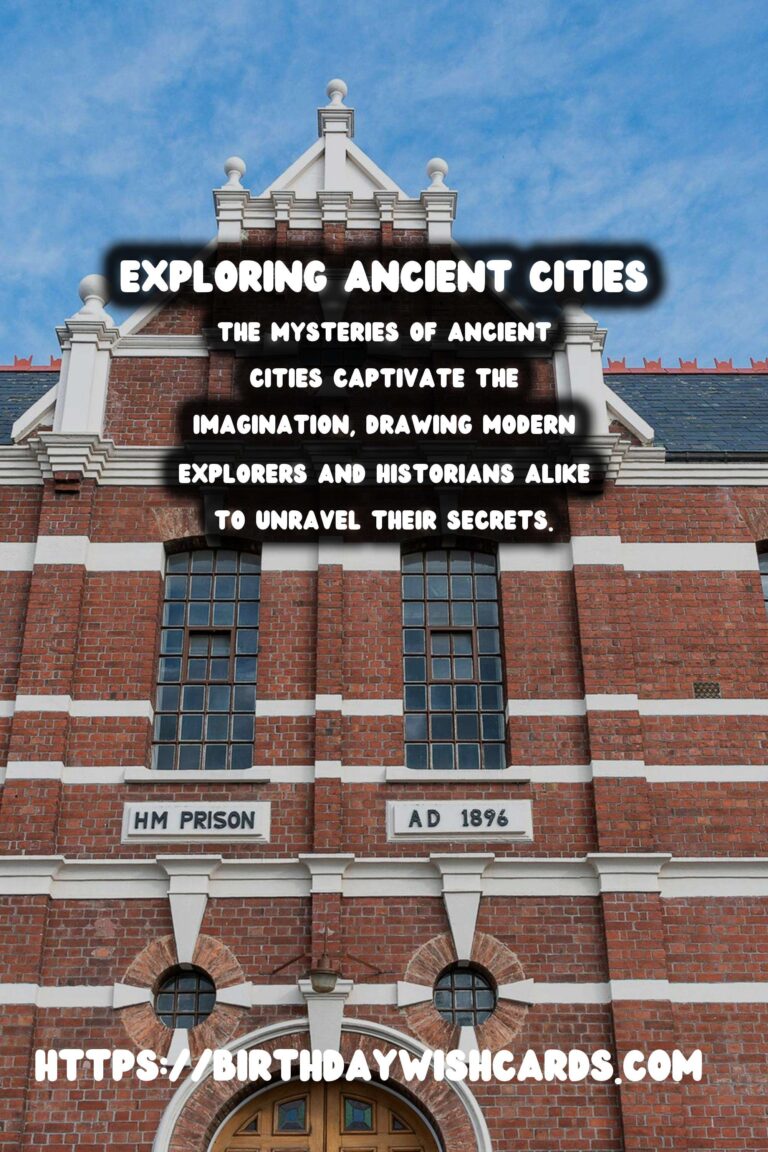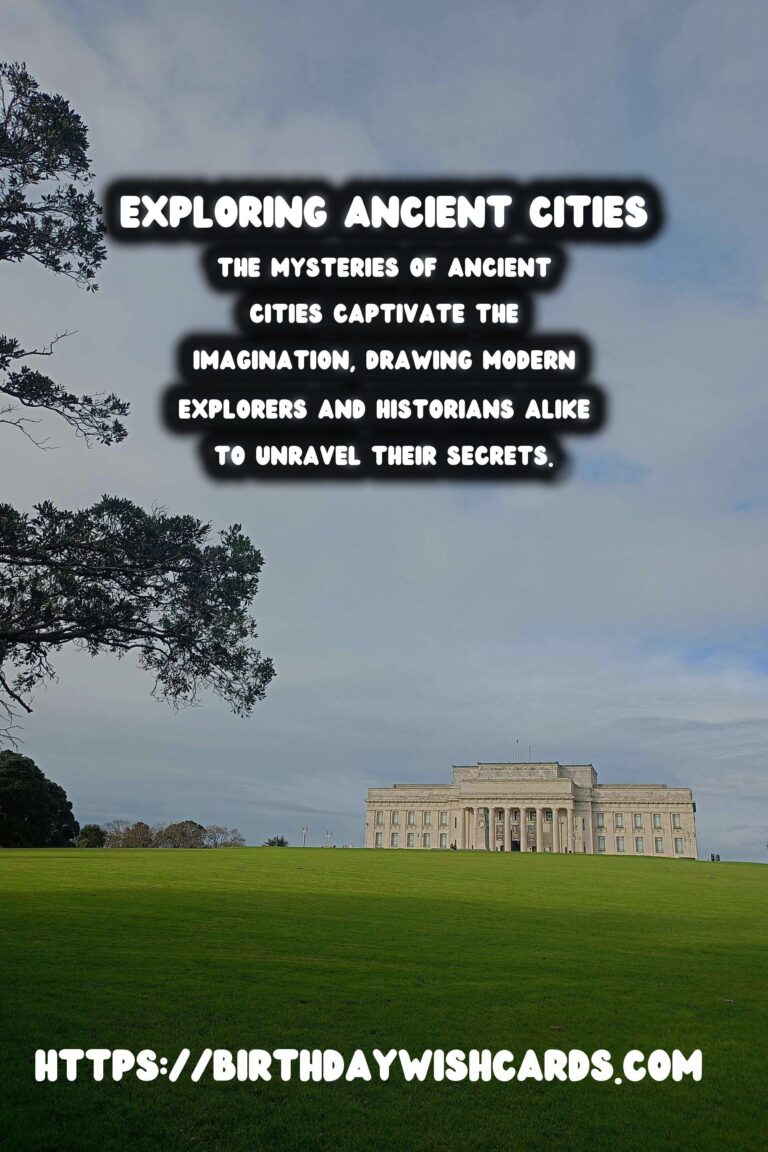
The mysteries of ancient cities captivate the imagination, drawing modern explorers and historians alike to unravel their secrets. These cities, rich in history and culture, offer unique insights into human civilization. Through archaeology and reconstruction, we can piece together the past, bringing to life the grandeur and daily existence of long-lost societies.
The Significance of Ancient Cities
Ancient cities serve as time capsules, preserving the remnants of past civilizations. They offer invaluable insights into architectural techniques, societal structures, and cultural accomplishments. Places like Pompeii, Machu Picchu, and Angkor Wat reveal much about the people who once thrived there, illuminating their innovation and adaptation skills.
For example, the discovery of Pompeii provides a snapshot of Roman life frozen in time, while the towering structures of Angkor Wat highlight the Khmer Empire’s architectural prowess. These sites are more than just ruins; they are living records of human history, offering clues about how past societies functioned and interacted with their environment.
Archaeological Methodologies
To unlock the secrets of ancient cities, archaeologists employ a variety of techniques. Excavations are meticulously planned to preserve the integrity of the site, often revealing artifacts and structures buried for centuries. Researchers use advanced technology, such as ground-penetrating radar and LiDAR scanning, to map out landscapes and uncover hidden features without intrusive digging.
Furthermore, archaeologists study ancient texts, inscriptions, and records to gain contextual understanding. This multidisciplinary approach combines science and humanities to paint a fuller picture of ancient urban life, from the mundane to the monumental.
Reconstruction Efforts
Reconstruction is critical in visualizing and preserving ancient cities for future generations. Efforts range from virtual reconstructions using digital tools to physical rebuilding using traditional techniques. Virtual reality (VR) and augmented reality (AR) applications allow people to experience these cities as they once were, enhancing educational opportunities and public engagement.
Physical reconstructions often involve careful restoration of structures using original materials and methods. Projects like the rehabilitation of the Acropolis in Athens or the Terracotta Army in Xi’an showcase the dedication to maintaining historical authenticity while enabling contemporary appreciation.
Challenges and Controversies
Reconstructing ancient cities is not without its challenges and controversies. Ethical considerations arise about the extent of reconstruction and the potential for altering authentic historical records. Balancing the preservation of ruins with the desire to reconstruct can lead to debates among historians, archaeologists, and conservators.
Questions about the funding and management of these sites often involve decisions about accessibility and tourism. While increased visitor traffic helps finance maintenance efforts, it also poses risks of environmental damage and over-commercialization.
The Future of Ancient City Exploration
As technology advances, the exploration and reconstruction of ancient cities will continue to evolve. Increased collaboration across disciplines promises new discoveries and deeper insights. However, it remains essential to navigate the fine line between preservation and innovation, ensuring that these windows into our past are preserved for future generations.
In conclusion, the archaeology and reconstruction of ancient cities play a vital role in preserving human heritage. By studying these sites, we not only learn about our ancestors but also gain perspective on the evolution of civilizations, providing lessons that resonate through time.
The mysteries of ancient cities captivate the imagination, drawing modern explorers and historians alike to unravel their secrets. Places like Pompeii, Machu Picchu, and Angkor Wat reveal much about the people who once thrived there, illuminating their innovation and adaptation skills.
#AncientCities #Archaeology

